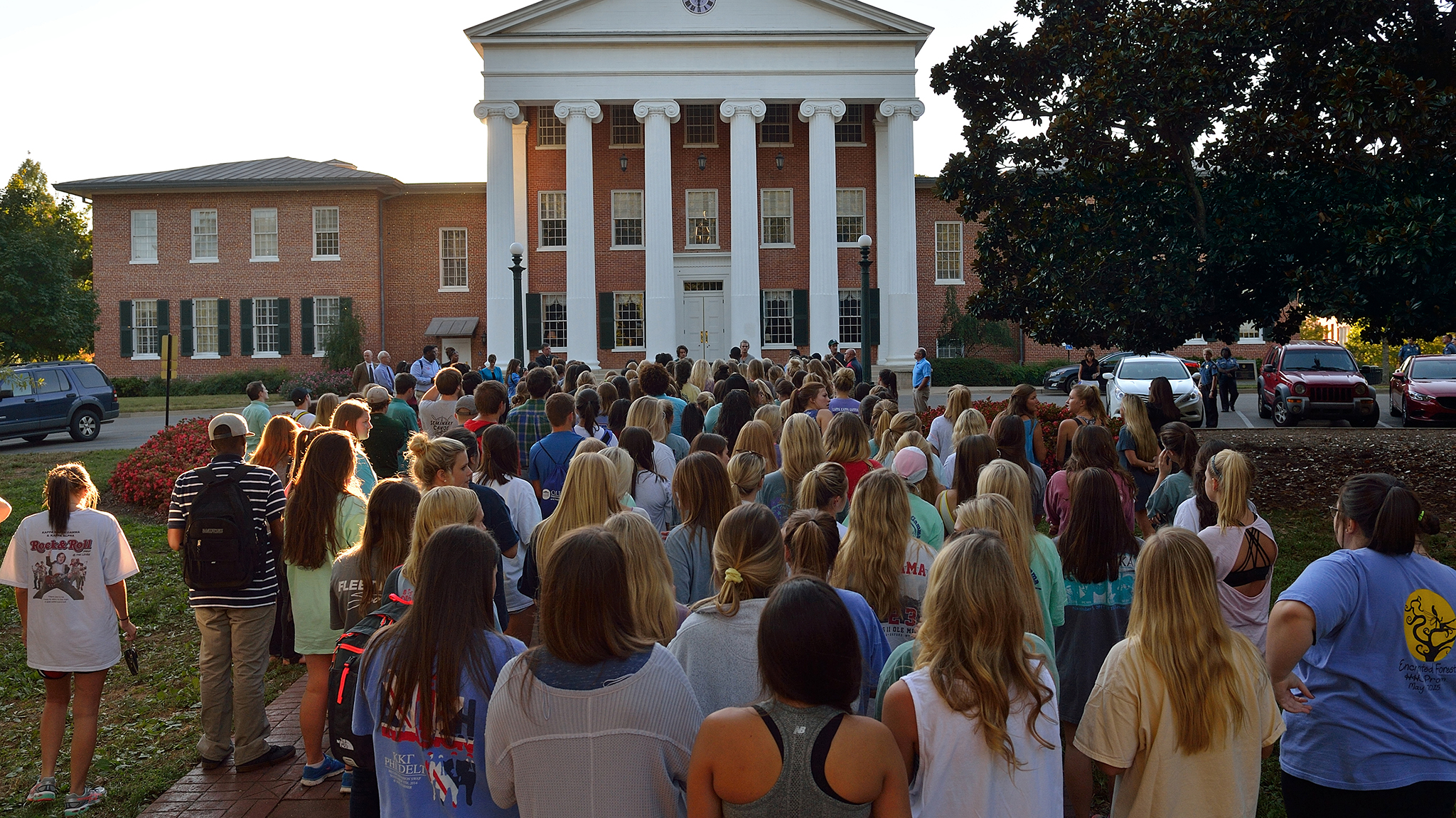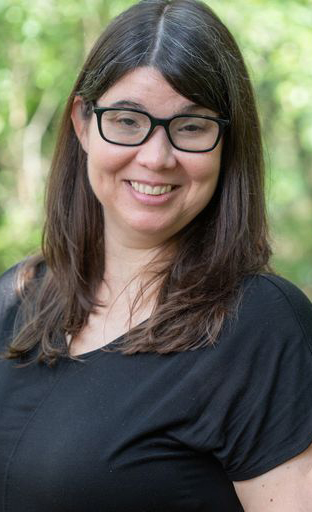Ana Velitchkova earns Kroc Peace Fellowship to continue research on violence

Students gather for a candlelight vigil after one of the many active shooter situations in public places in the United States in the last 10 years. UM professor Ana Velitchkova will spend the next semester at the University of Notre Dame studying the sociological patterns of mass shooters, active shooters and extremist groups. Photo by Thomas Graning/Ole Miss Digital Imaging Services
AUGUST 16, 2023 BY CLARA TURNAGE
University of Mississippi professor Ana Velitchkova will spend the next semester studying the violent behaviors of extremists as part of a fellowship with the Kroc Institute for International Peace Studies at the University of Notre Dame.
With more than 300 mass shootings in the United States in the first half of 2023, this year is on track to become the deadliest in recent history.
Much of this violence is perpetrated by extremist and hate groups, of which the Southern Poverty Law Center tracked a record high of 1,225 in 2022. Among these groups, however, those who actually commit violent acts are rare.
The associate professor of sociology and international studies is seeking to answer the question, “Why then do some extremists commit atrocities when others, who hold the same belief system, do not?”
“How can you have the same ideals and not the same actions?” Velitchkova said. “What is known is that violence is actually very rare, generally, in society. We are usually reluctant to engage in violence.
“What I’m trying to test now is, ‘What are the institutional elements that may make a person more capable of violence?’”
The Southern Poverty Law Center documented marked increases in hate groups devoted to white nationalism, antisemitism and anti-LGBTQ+ sentiment. Seven of those groups are based in Mississippi.
Only a minority of extremists ever become violent, but to devastating effect, Velitchkova said.

Ana Velitchkova
The Gun Violence Archive reported that 706 people died and 2,659 were injured in mass shootings – shootings in which four or more people were injured or killed – in 2022. The Federal Bureau of Investigation reported 50 active shooter incidents in which 100 people died and 213 were wounded in the same year. Both reports exclude the deaths of the shooters.
Velitchkova, a sociological theorist who became interested in the sociology of violence after the Sept. 11, 2001 terrorist attacks on the United States, said she wants to make sense of human violence at the individual level. As a part of her fellowship, Velitchkova will use media reports on mass shooters and extremists to better understand the social conditions and experiences that lead some individuals to violence.
“It is really hard to study violence,” Velitchkova said. “Sociology tends to take a very broad look at institutions in society. In my view, we also need to look systematically at variation among the people who make up institutions.
“My theory is very sociological in that it focuses on violent social institutions, but it also breaks these institutions down to the individual level, to people. How do we learn violence? How do these larger social processes get ingrained in a person?”
Her work will create profiles of extremists and mass shooters to determine what factors they have in common and what some potential drivers to violence may be, said Jeff Jackson, chair of the Department of Sociology and Anthropology.
“What we’ve known for a long time – and psychologists know this, too – is that that behavior emerges in a social context,” Jackson said. “Even though that individual may have acted alone, they are influenced by many factors that cause them to come to a decision like that.
“While you can never draw a direct correlation, what sociologists do is they try to find the pattern.”
Understanding the pattern of violence can help identify potential risk factors and may lead to better preventative measures, Jackson said.
“The work that we do – if we’re doing it well – really should have a benefit to society as a whole,” Jackson said. “That’s what we can see in Dr. Velitchkova’s work. She’s asking important questions that are puzzling to a lot of people.
“If you can identify those social conditions, you can begin to address some of the causes of these problems.”
Velitchkova will begin her project during the Kroc Fellowship but plans to continue studying at Ole Miss upon her return with the help of a fellowship from the Sarah Isom Center for Women and Gender Studies, a research grant from the College of Liberal Arts and an Achieving Equity Grant from the university.
